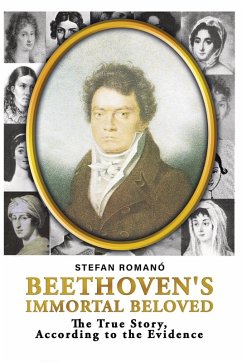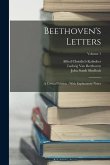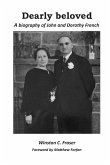The day after Beethoven's death on March 26, 1827, his friends found, in a secret drawer of his desk, together with his will and two miniature portraits of two young women, a ten-page letter dated "July 6 in the morning," that began with the intriguing incantation "My angel, my all, myself." It included no address and no name of the addressee, except for the now famous my immortal beloved hyperbole, containing passionate declarations of love and was signed, "L., forever yours, forever mine, forever us." Thus was born a biographical mystery of the artistic canon of the Western World, second only in tantalizing appeal to the identity of the person signing as William Shakespeare. Two hundred years later, biographers still have not come to a consensus on the mystery. Of the many candidates advanced in the meantime, only a few have survived in biographical literature. Stefan Romanó's book brings the controversy to a close. It clarifies the existing evidence that has often been muddled, and at times reached the absurd, during almost two centuries of scholarly speculations. He also adds some new insights into the analysis of the evidence, thus making it easier for readers to draw their own conclusions, hopefully not different from his, namely, that only one of the candidates proposed so far fits the evidence. He also provides a substantially modified scenario from the one advanced by her proponents. Born in Romania during WWII and immigrated to the U.S.A. in 1989, Stefan Romanó is not a musician nor a musicologist. He is an engineer by formation, a man of exactitude and clear and logical thinking, qualities that served him thoroughly when he became an amateur Beethoven scholar. A long-time member of American Beethoven Society and of its French counterpart, Association Beethoven France et Francophonie, he has published in their professional journals, bringing valuable contributions to understanding Beethoven's life and creation. His "Ending the Fifth" article answered a question that had puzzled musicians, scholars and music lovers alike for two hundred years: why does Beethoven's Fifth Symphony end with that apparently interminable series of C major chords? He took up the pen by force of circumstance for his Beethoven's Immortal Beloved when he realized that all the proposed solutions to the mystery relied on wild speculation and sometimes even falsifying the existing evidence.
Hinweis: Dieser Artikel kann nur an eine deutsche Lieferadresse ausgeliefert werden.
Hinweis: Dieser Artikel kann nur an eine deutsche Lieferadresse ausgeliefert werden.









